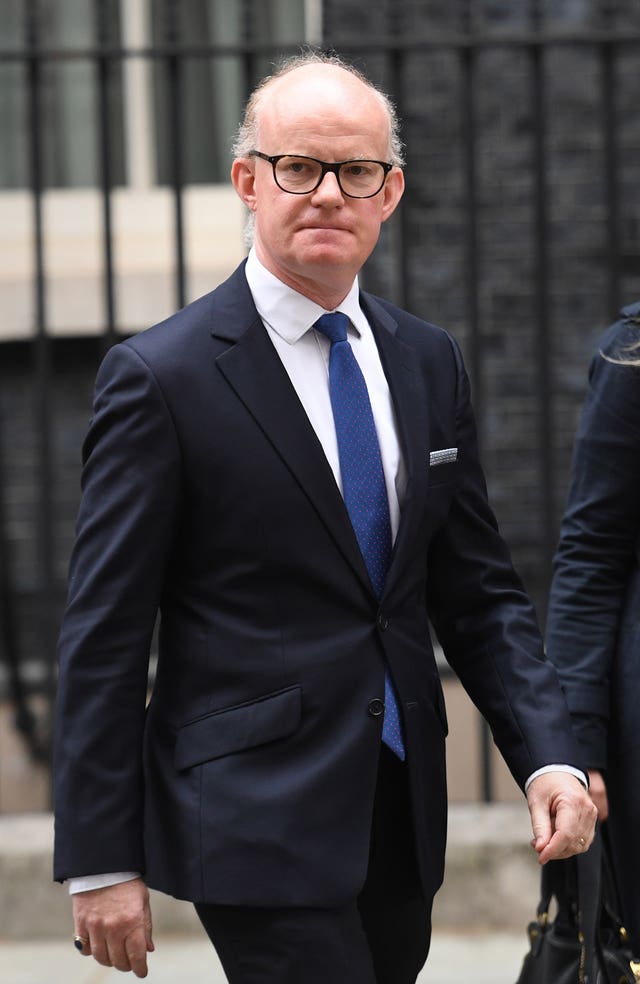Prosecutors have unveiled a five-year strategy to improve the rate of conviction in rape cases as new figures indicate they are running at a record low.
Police and prosecutors faced criticism earlier this month after it was revealed that just 1.4% of recorded rape cases ended with a prosecution in the year to March.
Statistics released on 30 July will show a significant decrease year-on-year in the number of completed prosecutions and the number of convictions, reflecting a fall in the number of suspects charged in previous years.
Commenting on the figures, the Crown Prosecution Service said it was “working hard to reverse the trend we’ve seen in recent years”.
Speaking ahead of the release of the latest statistics, Director of Public Prosecutions Max Hill said the CPS will use a five-year strategy to improve the figures.
Hill told the BBC Radio 4 Today programme: “I do accept the scale of the problem but we must also accept if we are talking about that, that looking back three or four years some serious mistakes were also being made.

“There were cases going to court which shouldn’t have been going to court, so we have had to eradicate that as well.”
Hill also said more alleged rape victims should be allowed to pre-record evidence to avoid coming to court for trial.
And victims who do need to attend court should be offered a “digital walkthrough” of the process so that they know what to expect.
He said: “In some cases you can streamline the process by pre-recording the evidence that a witness will give in a police recorded video interview and then through cross-examination by advocates on a date before the trial so that the victim doesn’t need to attend trial.
“I do think there’s a need for us to look again at those provisions, and to broaden the number of categories of people who should be entitled to submit to pre-recorded cross-examination rather than waiting a long time in order to attend trial.
“So to expand beyond the current definition of vulnerable witnesses into more categories of people is something I think we should be looking at, and actually given the national emergency due to Covid and the pressure on the system it could only help us to deal with the backlog of cases in the system.”
Hill admitted that the proportion of rape cases leading to a prosecution remained low as the country went into lockdown, but said that it had risen in recent months.
He told PA: “Here we are reporting on the final quarter of the financial year 2019/20. We all know that takes us into the coronavirus national emergency era, and we all therefore have to predict that there will continue to be a problem in absolute numbers.
“But what I am encouraged by in this reporting quarter is that the trends are moving in the right direction. That means in particular the proportion of cases that are brought to the CPS by the police that we are able to charge, to take to court, continues to rise.
“We are not seeing that as a blip or a phenomenon in one quarter, we are seeing that continue from quarter to quarter and the next. We are also seeing the conviction rate increasing.”
The CPS strategy, published on 30 July as its latest rape and sexual offence prosecution figures were also due to be released, includes a joint action plan with police and giving officers legal advice early in investigations.
Prosecutors will also be given advice on dealing with cases of same-sex sexual violence and sexual violence involving a transgender complainant or defendant.
According to a report from the Police Foundation published on 29 July, the number of rapes reported to police rose by 260% between 2013 and 2019.
But data from the Home Office showed that in the 12 months to March just 1.4% of 55,130 offences recorded by police led to prosecution. Of the cases that were closed, 41% collapsed because the victim did not support further action.
Hill said: “I’m very anxious to ensure that everyone understands that the Crown Prosecution Service, just like our partners in the police and everybody else involved in dealing with these truly awful crimes, is keen to do more, to look further and to work harder to improve in the interests of the whole system.
“What I’m saying today in launching our rape and sexual offences strategy for five years through to 2025 is that the CPS will continue to develop, to train our people and to work out how to help individuals and their cases to come through the criminal justice system.
“We need to continue to achieve a balance between the needs and the rights of victims and those of suspects, but if we work harder we will see continuing improvement.”

















